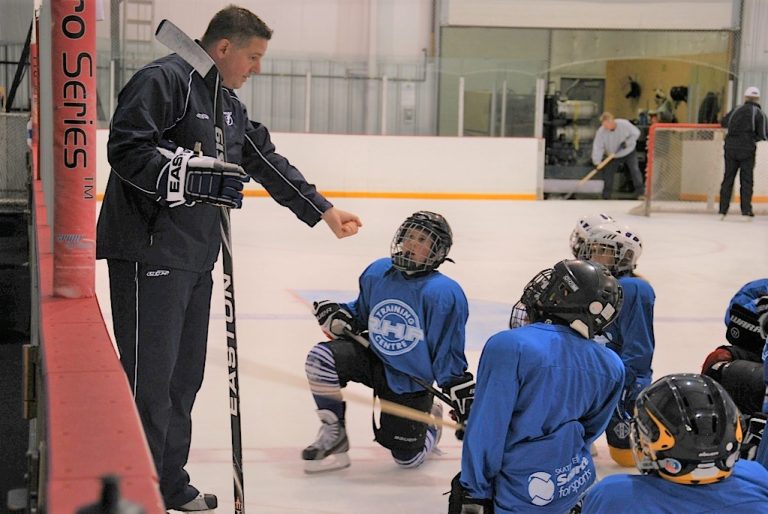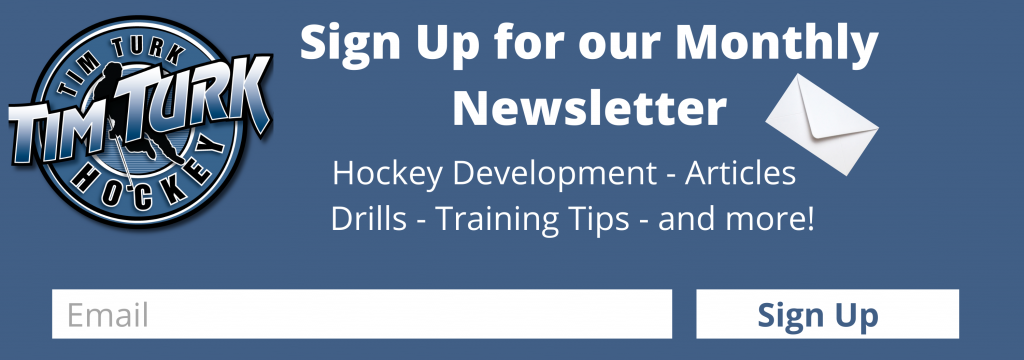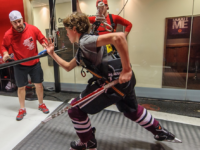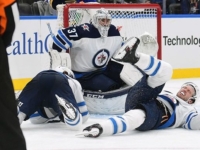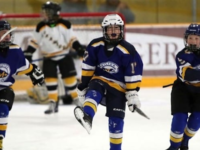Coaching minor/Youth hockey is an incredibly fulfilling and satisfying experience. This is especially true in places where youth hockey is engrained into society and is such a popular sport for young children to play. It takes countless volunteer hours and dedication to the players to be there for every practice and game.
There comes a time in every coach’s career when it is time to move to a higher level. This could be because your child is getting older and playing at a higher tier. It could be that you’ve gained experience and are ready to take the next step. Whatever the reason might be, there are some things to consider when moving up coaching levels in minor hockey. This article will discuss what you can expect and what things in your coaching routine you will want to change to adapt to a higher level of coaching.
What to Expect When Coaching a Higher Level of Hockey
Welcome to the big leagues, coach! In all seriousness when you jump from say five-year-olds to Atom or Pee Wee, there’s a major difference in how you approach coaching and how you even deal with the players. After all, it is an entirely different level of maturity and ability.
When coaching younger kids who are just starting in hockey, it’s all about learning the basics. Often you are focusing on how to skate and how to find balance with all of the equipment on for the first time. It’s fun, it’s cute, but a lot of it can be how to just hold their attention. Coordination will come and the first couple of years are just to introduce them to the game. But as you move higher, there is a lot more to consider. Here are a few things to keep in mind before making that jump to coaching a higher level of minor hockey.
Older Players Need Structure
As players get older and their attention spans develop, it’s time to get more serious about hockey. At this age, coaching is extremely important for players as it is a pivotal point that can determine if they want to continue playing or not. As competition increases, you will find that more players will not return in future seasons.
When you reach a higher level of hockey, players need more intense and structured practices. It isn’t just about having fun and getting exercise, at this age, these players need structure and the opportunity to continue to develop their skills. Without a proper game plan for practice, you’ll find yourself working harder to try and keep their attention. In the worst case scenario, some of them might even lose interest in practices which will impact how they play in games and even potentially their fondness for playing.
Parents Will Be More Intense
If you’re concerned about the players being more intense, wait until you meet the parents. In all seriousness, anyone who has been around the game knows that hockey parents can take things a little too far sometimes. We all love the game and take it seriously but there’s definitely a line that shouldn’t be crossed. Unfortunately, the higher the level of minor hockey, the more serious the parents take things.
So what can you do to prepare yourself? It wouldn’t hurt to take some extra coaching courses on communication and difficult conversations. You’ll also want to establish boundaries at the start of the season. Open streams of communication between yourself and the parents and let them know what your expectations are. This can go a long way in helping both sides have a successful and enjoyable season.
Prepare Yourself for Difficult Decisions
Like it or not, higher levels of any sports will lead to having to make difficult decisions. This is a part of being a coach and unfortunately, as much as you’d like to, you cannot appease everyone. As you coach higher levels, team tryouts are a difficult but necessary way to start each season. We head into tryouts knowing that many of the kids who come out will not make our team.
Does it ever get easier? As with most things, you can get used to making these tough decisions in time. The part that is always hard is knowing that some kids are going to be disappointed with your decisions. It’s something that comes with the territory and if you want to keep moving on to coaching higher levels, you will need to develop some thick skin and take the emotion out of your decision.
Get Your Fitness Up to Speed
When you coach the early years of minor hockey, you can get away with coasting around the ice and not exerting much effort. But when you get to a higher level, you’re going to want to make sure you’re in shape for the start of tryouts. Why? Psychologically, players will take your instructions more seriously and be willing to listen if they can see you on the ice in skates.
It’s also an excellent way for you as the coach to be able to get a feel for each player’s abilities. What better way to gauge their speed or skill development than to skate alongside them on the ice? If you want to be taken seriously as both a coach and a hockey player yourself, then lace up the skates hop on the ice and join your team at every practice.
Conclusion: What to Expect for Coaches Moving Up Levels
Coaching will always be a challenge no matter what level your team is. If you want to continue to work your way to higher levels, you’re going to need to start taking it seriously. The players, the opposition, and the parents are all more intense. It has to be said: that coaching higher levels of hockey isn’t for everyone!
But for those of you who are determined to ascend in the coaching levels of minor hockey, this article gave you some insight into the things you need to consider. More structure for the players, dealing with parents, making difficult decisions, and getting yourself back into shape. If you can get these things in order, there’s a greater chance you’ll succeed no matter what level of minor hockey you choose to coach!


